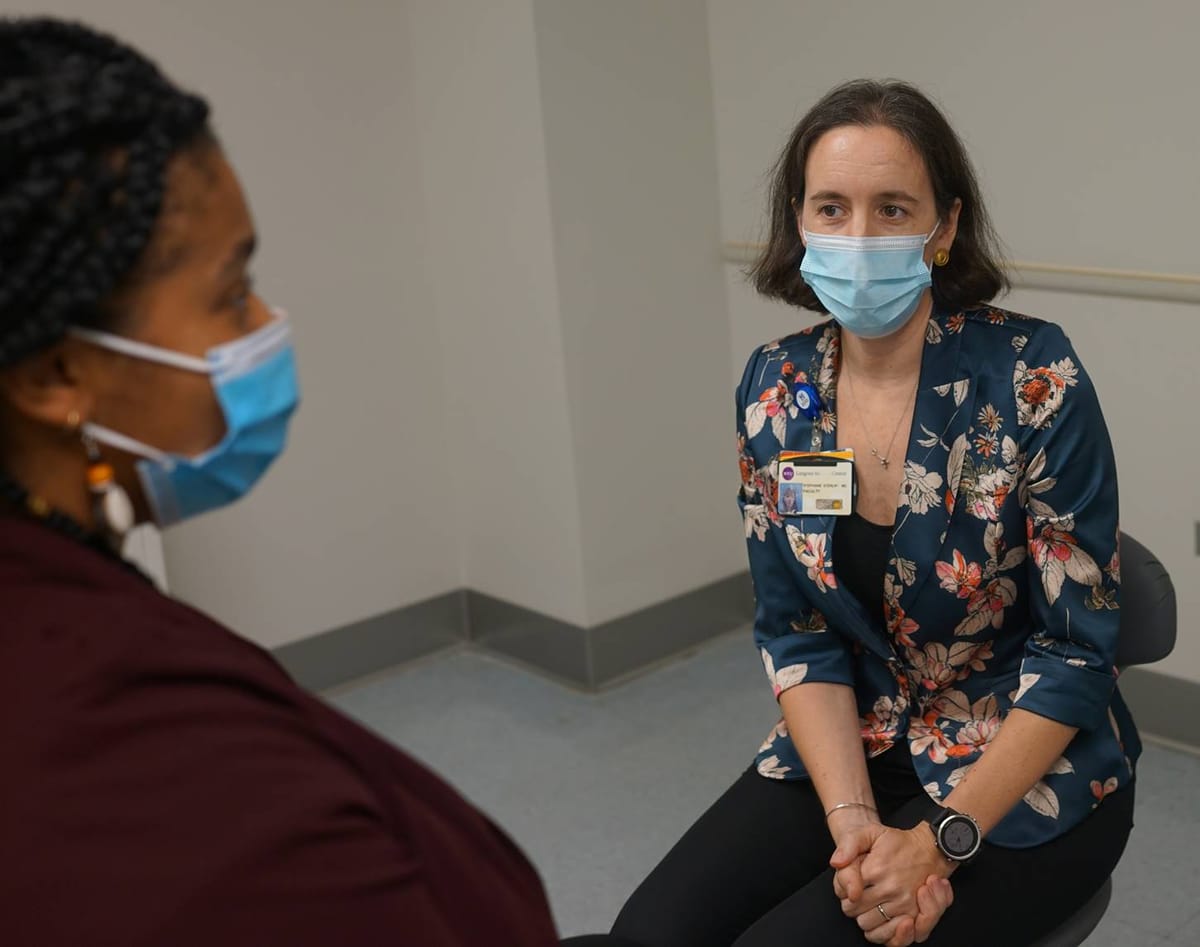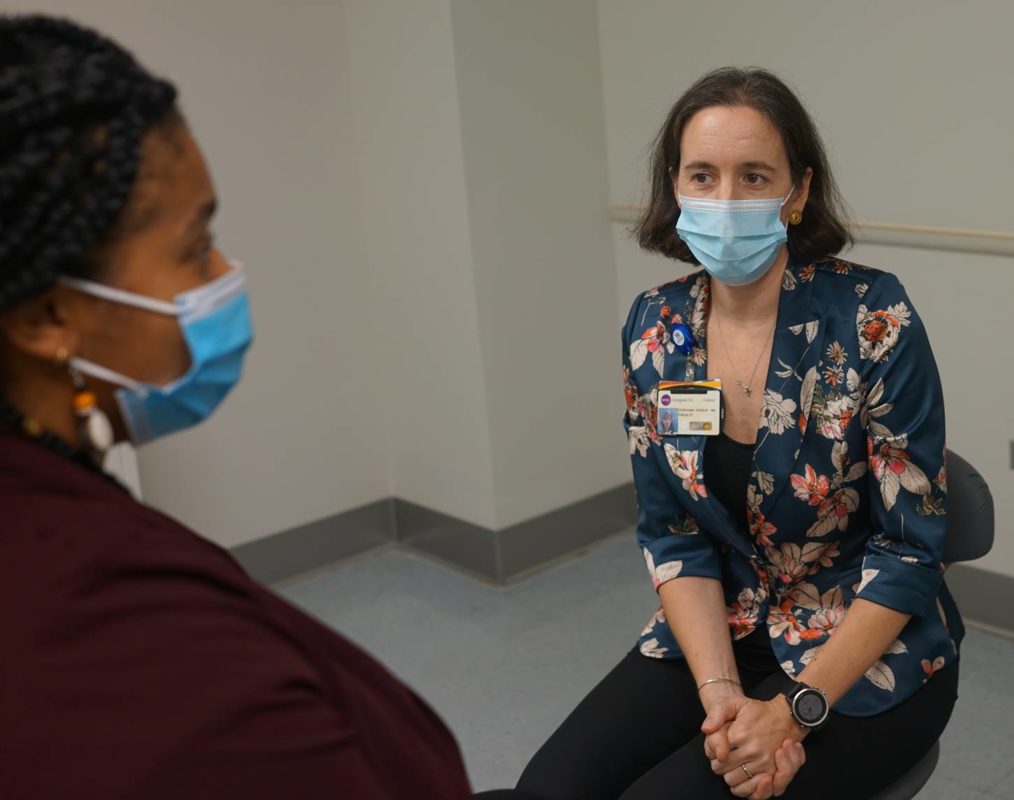COVID19 Vaccine Trials In Brooklyn Seek Participants From Underrepresented Communities


You may have seen ads on local TV suggesting you enroll in trials of a new vaccine against COVID-19. Not sure what to make of it? We were too, so we talked to NYU Langone Brooklyn’s Dr. Stephanie Sterling.
Stephanie Sterling, MD, MPH, is the chief of infectious disease and hospital epidemiologist at NYU Langone Hospital–Brooklyn, and co-leader of the NYU Langone Vaccine Center’s Brooklyn research clinic along with Lalitha Parameswaran, MD. The Vaccine Center opened the Brooklyn clinic to expand enrollment in clinical trials of vaccines and experimental treatments for the pandemic coronavirus – part of one of 10 specialized National Institutes of Health-funded Vaccine and Treatment Evaluation Units, or VTEUs, in the nation.
“The expansion of the vaccine center into Brooklyn is an enormous opportunity and will have a meaningful impact in the global effort to develop a COVID-19 vaccine,” Dr. Sterling said. The new centers are currently enrolling patients in a randomized, placebo-controlled trial to test the efficacy of an experimental vaccine—being developed by the company AstraZeneca—against the virus that causes COVID-19.
The trial of the vaccine candidate, called AZD1222, seeks to enroll 30,000 volunteers between the ages of 18 and 85 globally. The Wall Street Journal reports that the company expects results from the trial this year and that 23,000 volunteers have been recruited globally. The trial was paused due to an adverse reaction in one of the participants but has since resumed after FDA authorized the trials in late October.
The NYU Langone Vaccine Center is looking in particular to recruit participants from groups currently underrepresented in clinical trials such as Black, Hispanic, and elderly people who are at higher than average risk of COVID-19 infection.
Dr. Sterling, who should participate in this trial and why?
Who should: Adults who are currently underrepresented in clinical trials and who are of groups disproportionately affected by the virus, such as Black, Hispanic, and elderly people (65 or older) who are at higher than average risk of COVID-19 infection. Other higher-risk patients for COVID-19 include those with underlying conditions such as heart disease, hypertension, asthma, chronic obstructive pulmonary disease (COPD), diabetes, or autoimmune disease, and those who are at higher risk from essential services industry, including transportation, security, health aides, hospital employees, and other health related professions.
Who shouldn’t: Children, because the scientific study protocol at the vaccine center site does not include children. Adults who do not have high-risk factors as stated above.
Is it safe? What are the risks?
Dr. Sterling: Risk factors will be determined and shared on an individual basis based on a health assessment upon prescreening and while registering in the trial registry. A detailed discussion of the pros and cons individualized for the participant will be provided as a part of the informed consent process. This is a clinical trial and participation is purely voluntary. Participants can withdraw from any trial at any point.
How long will the trial run and when will you know if you got the placebo?
Dr. Sterling: Current trial participants will receive either two doses of AZD1222 or saline solution as a control, four weeks apart, with twice as many participants receiving the potential vaccine than the saline. The health of patients will be monitored for two years after their second dose of the vaccine candidate. Being a randomized, double-blind trial, neither the participant nor the clinician administering the vaccine will know who gets a vaccine or a placebo. That information is tracked independently by AstraZeneca and the NIH.
What will the monitoring be like/ what is the commitment from those participating?
Dr. Sterling: There will be regularly scheduled follow-up appointments that will occur at a schedule generated during the first visit. Most visits are in person but some are virtual. Additionally, participants can call our 24/7 call line for questions and concerns related to trial participation or symptoms. We are, however, not supplanting their usual medical provider, and we also do not provide emergency care.
Is there a cost or compensation to participate?
Dr. Sterling: Compensation to participate in the trial is offered. People who volunteer to participate in clinical trials are compensated for their time. The compensation can vary between studies and the amount for each visit can vary, but total compensation could be up to $1,000 for full participation.
What do you say to people who are suspicious and skeptical of calls to participate in trials when they are targeted at minorities and other vulnerable populations?
Dr. Sterling: Diversity in clinical trial enrollment is critical to ensuring the safety and efficacy of a vaccine, and we are grateful to have wonderful community partners in Brooklyn to help bring an end to this international public health crisis. This virus heavily affected minority and other vulnerable populations. It is our responsibility as a community and as researchers to ensure those same populations are included in our work to find treatment and a cure.
To express interest in COVID-19 vaccine trial enrollment or learn more, visit http://nyulmc.org/covidvaccine



